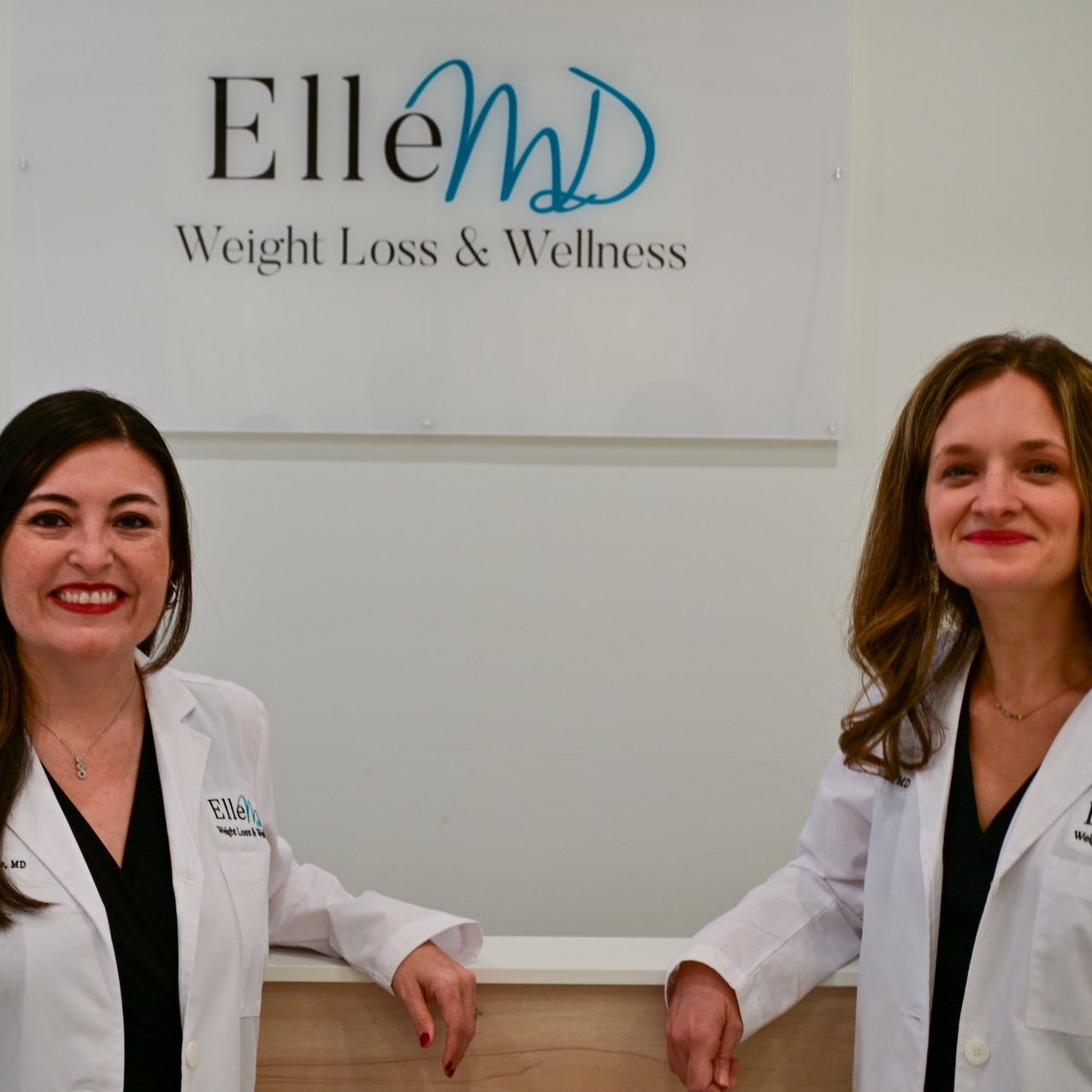Who can prescribe weight loss medication? A guide to finding the right doctor
If you’ve hit a plateau with diet and exercise, or your metabolism feels like it’s working against you, you might be wondering if weight loss medication could help. And while there are more prescription options available than ever—like GLP-1s ( Zepbound, Wegovy), phentermine, and Contrave—knowing who to talk to and what approach is right for you can feel confusing.
The truth is, several types of physicians can prescribe weight loss medication, but not all of them provide the same level of support, follow-up, or personalization. In this guide, we’ll break down who’s legally allowed to prescribe, what each type of physician typically offers, and how to find a doctor who will treat you—not just the number on the scale.
Because medication alone isn’t the solution. But when it’s paired with root-cause care, the right support, and a plan that actually fits your life? It can be the thing that helps you move forward with clarity and confidence.
In case we haven’t met—we’re Dr. Erin Hendriks and Dr. Maricela Castillo MacKenzie. At Elle MD,
a functional medicine clinic based in Royal Oak, Michigan, we help women navigate midlife with science-backed care, deep compassion, and a root-cause approach that honors the whole you. And we are also the
best weight loss doctors in town serving patients all across Michigan!

What kind of doctor can prescribe weight loss medication?
Here’s the truth most women don’t hear: yes, many doctors can prescribe weight loss medications—but that doesn’t mean they understand what’s actually happening inside your body.
Weight gain in midlife isn’t just about calories or willpower. It’s about hormones that are shifting without warning, energy that drains even when you sleep, and emotional patterns that you’ve carried silently for years. It's about finally asking for help—and feeling brushed off with advice that feels hollow, outdated, or even shaming.
Let’s walk through the most common types of providers women turn to—and what they each bring (or miss) in this journey.
Primary Care Physicians (PCPs)
For many women, this is where the search begins. Your primary care doctor has likely seen you through various seasons of life. They know your basic medical history, and they might be the first person you tell, “I’ve been trying to lose weight, and nothing’s working.”
But here’s the reality: most PCPs aren’t trained to treat obesity as a medical condition. They often view weight loss as a side effect of diet and exercise—not as a complex, multifaceted issue involving hormones, stress, metabolism, trauma, and sleep.
They might mean well, but their responses often feel... incomplete.
They might say:
- “Try a different diet plan.”
- “Just move a little more.”
- “Let’s give it time and check again in six months.”
And meanwhile, you’re in tears every time you get dressed. You’re exhausted from trying. And no one seems to be listening.
What they may miss:
- That your eating patterns are tied to years of emotional survival.
- That your sleep is disrupted not because of bad habits, but because of cortisol or perimenopause.
- That your weight isn’t just physical—it’s emotional, hormonal, and deeply layered.
Endocrinologists
If you’ve ever thought, “Maybe it’s my thyroid”—you’ve probably considered an endocrinologist. These doctors specialize in hormone-related conditions, including hypothyroidism, PCOS, insulin resistance, and adrenal imbalances.
They’re experts in lab values, diagnoses, and medications that address hormonal dysfunction. And if there’s a clear, measurable issue on paper, they’ll likely find it.
But what if your labs come back "normal"—and you still feel exhausted, puffy, disconnected from your body? That’s where many women hit a dead end.
They might say:
- “Your TSH looks fine.”
- “Your labs are in range.”
- “Let’s wait and see.”
And just like that, your very real symptoms are swept under the rug.
What they may miss:
- That hormone “normals” are based on wide ranges, not on you.
- That perimenopause and menopause can deeply disrupt your wellbeing—even if your labs look clean.
- That your lived experience matters just as much as your numbers.
Endocrinologists can be valuable partners—but often, their lens is narrow. They treat the labs, not the whole human.
Obesity Medicine Specialists
These are the doctors trained specifically to treat obesity as the chronic, complex condition it truly is. They’ve studied the science of weight regulation—how hormones, brain chemistry, environment, medications, and metabolism all interact.
They don’t see your weight as a personal failure. They see it as a clinical puzzle—and they know how to treat it responsibly.
They might say:
- “Let’s talk about your full history.”
- “Here are some medication options that align with your body’s needs.”
- “You deserve a plan that actually works for you.”
These physicians are trained to prescribe weight loss medications safely, monitor side effects, and support long-term change.
They understand that weight loss isn’t linear, and that compassion is part of good medicine.
What makes them powerful:
They know how to combine medication with behavior change, lab testing, and real support.
They’re up to date on evidence-based treatments.
They view your weight in context—not in isolation. But keep in mind: not all obesity specialists practice from a root-cause perspective. Some may focus heavily on medication or metrics, without addressing the deeper drivers of why your body holds weight in the first place.
Functional Medicine Doctors
This is where care often becomes more personalized. Functional medicine doctors aren’t looking to “fix” you. They want to understand the why behind your symptoms.
Why do you feel tired all the time? Why do you crave sugar at night? Why does your body feel inflamed, heavy, or stuck?
They’ll ask about your gut health, your stress, your trauma, your sleep, your cycle—even your childhood. Because all of it matters.
They might say:
- “Let’s dig into your story.”
- “Let’s run deeper labs.”
- “Let’s rebalance what’s been thrown off.”
Functional medicine doctors are known for taking their time. They believe your body is speaking—and they want to help you listen.
But here’s the thing: not all of them are trained in obesity medicine. They may be amazing at identifying the root cause, but they may not have the clinical training to prescribe or manage weight loss medications effectively.
What they may miss:
- The medical structure some women truly need to feel supported.
- The therapeutic role of medication when hormones and metabolism are severely dysregulated.
- The urgency that some patients feel when weight gain is affecting their health and self-worth.

Can a doctor prescribe me weight loss medicine?
Yes—many can. But not all should. While licensed physicians like PCPs, endocrinologists, and obesity specialists are allowed to prescribe medication, what truly matters is how they do it.
By the time you’re considering medication, chances are you’ve already tried everything. What you need now isn’t another generic plan—you need someone who sees the full picture: your hormones, your stress, your sleep, your story.
At Elle MD, we’re not just trained in prescribing—we’re trained in understanding. We combine obesity medicine with functional medicine to treat your weight with the depth and compassion it deserves.
How to get prescribed weight loss pills
It starts with honesty.
Not just with your provider—but with yourself. Getting prescribed weight loss medication isn’t about asking for a magic pill. It’s about saying, “I’ve done everything I can—and I need a new layer of support.”
When you meet with a doctor trained in obesity medicine (like we are at Elle MD), they’ll look at the full picture. Not just your weight or your BMI, but your symptoms. Your habits. Your emotional relationship with food. Your hormones. Your sleep. Your history.
They’ll ask questions no one’s asked before.
And they’ll use your answers—not just a formula—to guide whether medication is the right fit for you.
Who can prescribe weight loss injections?
Weight loss injections like zepbound and Wegovy have become wildly popular—but they’re not one-size-fits-all. And they’re definitely not just another trend.
Doctors who can prescribe these injections include:
- Obesity medicine specialists
- Endocrinologists
- Some primary care doctors
- Nurse practitioners and physician assistants (depending on your state)

How do I qualify for prescription weight loss pills?
If you're wondering whether you'd even qualify—you're not alone. Most women do.
Most doctors will consider:
- A BMI of 30 or higher, or
- A BMI of 27+ and a medical condition tied to weight
At Elle MD, we go further. We look at:
- Your fatigue, cravings, and cycle
- Your hormone panels
- Your gut and blood sugar function
- The invisible weight you’ve been carrying emotionally
Because your body may be telling a different story than the chart in front of us. And we want to hear that story, too.
So, what kind of doctor is right for you?
The answer depends on your story.
- If you’re just starting out and need labs or referrals: a PCP may be a good first step.
- If you suspect a hormone issue: an endocrinologist can provide clarity.
- If you’re ready for medication and full treatment plans: an obesity medicine specialist is ideal.
- If you want to heal the root and take your time: functional medicine may offer the depth you’ve been craving.

At Elle MD, you don’t have to choose.
We are board-certified in Obesity Medicine and trained in Functional Medicine. That means we treat your body and your story. Your labs and your lived experience. Your symptoms and your soul. Because real healing doesn’t come from choosing between science and compassion. It comes from both.
Maybe you’re not looking for another plan—you’re looking for yourself. For the version of you who felt at home in her body. For the one who didn’t question every meal or hide behind loose clothes. Maybe you’re looking for someone to actually listen. To connect the dots. To walk with you—not ahead of you.
At Elle MD, we don’t offer quick fixes. We offer care that honors everything you’ve been through—and everything your body’s still capable of becoming.
If you’re ready to feel strong again, steady again, you again—this is where we begin.
Book your appointment today or explore our Weight Loss Program.
Let’s rewrite the story you’ve been telling yourself in the mirror. Let’s do this, together.
*AI Disclosure:
This content may contain sections generated with AI with the purpose of providing you with condensed helpful and relevant content, however all personal opinions are 100% human made as well as the blog post structure, outline and key takeaways.
* Affiliate Disclosure: Some of the links on www.elle-md.com may contain affiliate links meaning that we will get a commission for recommending products at no extra cost to you.
*Blog Disclaimer: Please note that reading our blog does not replace any health or medical advice consultation. Read our blog disclaimer here.

Meet the Drs.
Dr. Hendriks and Dr. Castillo MacKenzie are board-certified physicians, female, specialized, with over 10 years of experience.
Elle MD started after practicing in a traditional primary care setting together for over a decade. We grew frustrated with the current healthcare model, which places no emphasis on addressing the root cause of chronic disease. A lot of times, conventional care doesn’t even promote overall wellness!
We founded Elle MD in Royal Oak, MI, with a vision of providing this care in a compassionate and personalized way.
Download your free guide













